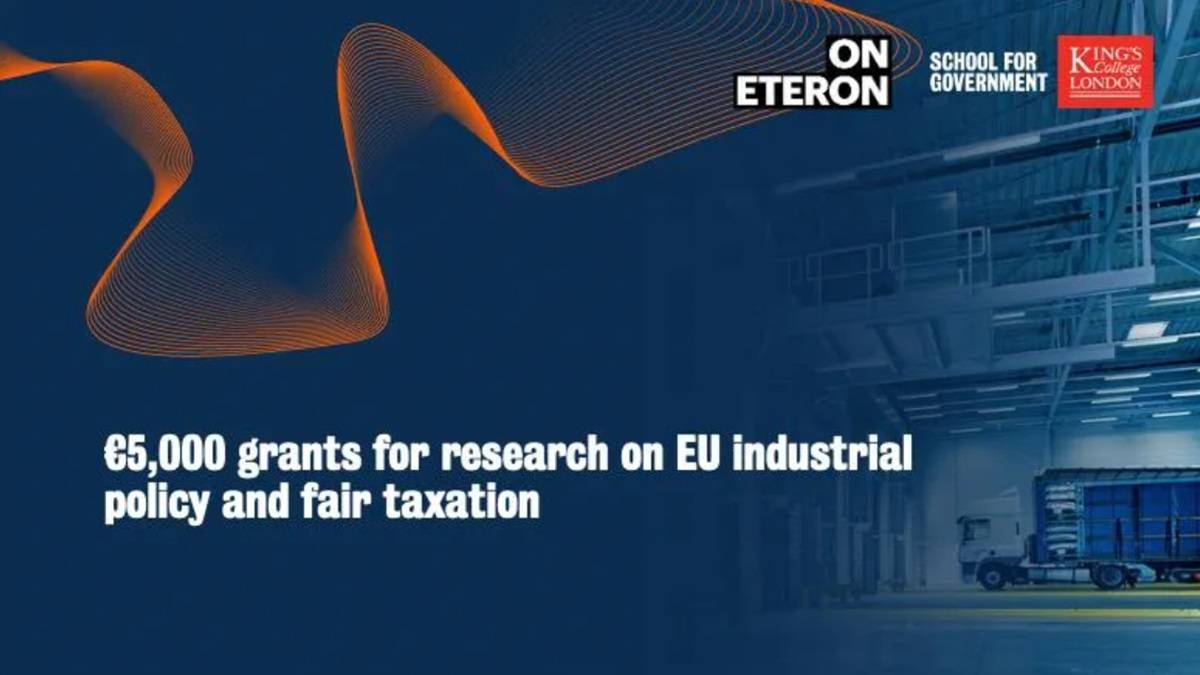King's, ETERON Institute Introduce New Research Project On Industrial Policy And Just Taxation
Study in UK: King's College London and ETERON Institute jointly offering €5,000 grants for research on the European industrial policy and fair taxation.
Study Abroad: King's College London has joined forces with ETERON Institute for Research and Social Change to launch a new research project titled Reclaiming Europe’s Industrial Policy Through Just Taxation and Innovation. The initiative is built on the reports by Mario Draghi and Enrico Letta and the UK’s "Invest 2035" strategy. It is launched to advance knowledge on the joining or intersection of fair taxation and industrial policy.
The new project has invited researchers with expertise in Political Economy, Economics, or Political Theory to apply for a grant of €5,000.
Dr Georgios Samaras, Assistant Professor of Public Policy at the International School for Government and principal investigator on the project commented, "The initiative offers a significant opportunity for researchers across various disciplines to contribute to high-quality academic outputs."
Christos Papagiannis, Director of ETERON, observed, "The challenges confronting Greece, the United Kingdom, and Europe require unprecedented collaboration. Universities and research organizations have a responsibility to foster such partnerships and to contribute realistic, ambitious, and equitable solutions."
King's Project Awarded UKRI Funding To Study Language Evolution
The European Research Council has selected the Computational Corpus Annotation for Quantitative Analysis of Latin Lexical Semantics (COALA) project to study language evaluation. Dr Barbara McGillivray, Lecturer in Digital Humanities and Cultural Computation in the Department of Digital Humanities at King’s and group lead of the Computational Humanities Research Group, will lead this new project. The project will receive a whopping €2M grant from UKRI under the Horizon Europe guarantee.
"The impact of this project has the potential to be significant not only for the study of Latin but also for historical linguistics in general. The research will offer new insights into how words change their meanings across different types of texts and historical periods. It will also help us understand how different words within the same field of meaning evolve and how these changes can be tracked over time," said Dr Barbara McGillivray.
"The COALA project will make a major contribution to the Department’s growing expertise in computational humanities and heritage. It will transform how we study language change over time, giving us new insights into how word meanings evolve, not just in Latin but in other historical languages. Through its innovative use of computational methods and tools, it promises to push the boundaries of what can be done both in historical linguistics and digital humanities more broadly," Dr Mark Hedges, Head of Department, Digital Humanities.
Read more:
Pick your stage and get free guidance from counsellors who've helped thousands get into top universities.
 Starting research
Starting research Shortlisting colleges
Shortlisting colleges Exam preparation
Exam preparation SOP/LOR writing
SOP/LOR writing Scholarship & finance
Scholarship & finance Visa application
Visa application

